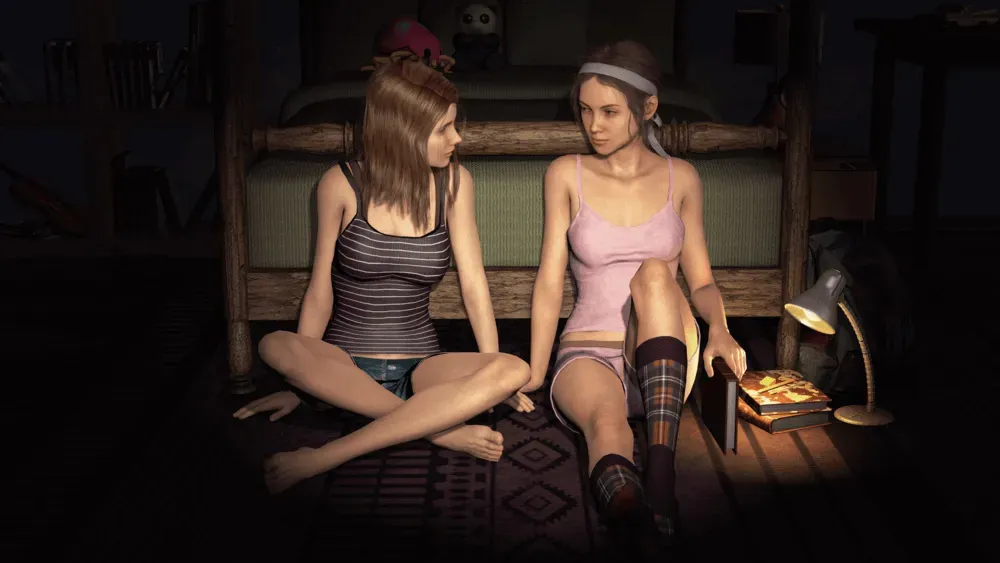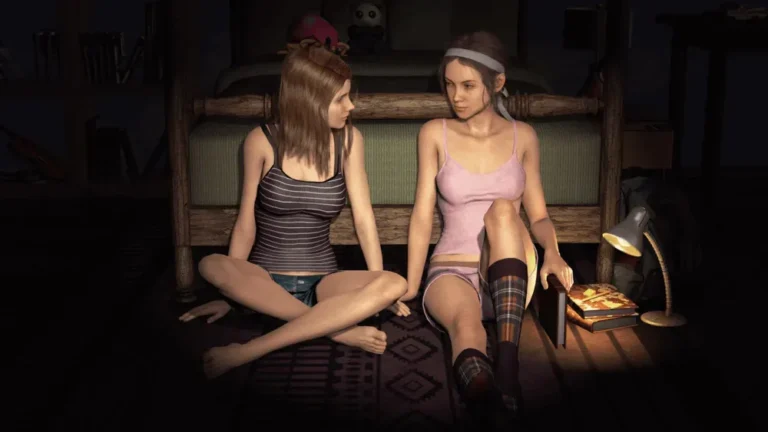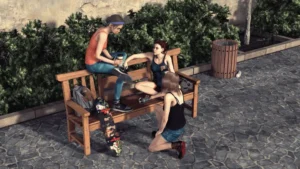
Short Sad Stories
Play Short Sad Stories
Short Sad Stories review
Exploring the narrative, gameplay, and emotional impact of Short Sad Stories
Short Sad Stories is a captivating visual novel that immerses players in a poignant narrative centered around Alice, a dreamy girl caught between reality and fantasy. This game stands out for its emotional depth, complex relationships, and meaningful decision-making that shapes the story’s outcome. In this article, we explore what makes Short Sad Stories a unique experience, from its plot twists to its engaging gameplay, offering insights and personal reflections on navigating its bittersweet world.
Understanding the Story and Characters of Short Sad Stories
Ever sat down to play a game expecting a quick distraction and ended up emotionally floored, needing a moment to just… breathe? 😮💨 That was my exact experience with the Short Sad Stories game story. It’s a visual novel that proves you don’t need a hundred hours of gameplay to tell a tale that sticks with you. At its heart is a journey of profound love and loss in visual novels, masterfully told through the eyes of its protagonist. The entire experience is a masterclass in game narrative development, making every choice and every interaction feel weighted with meaning.
This deep dive is all about understanding the world and the people within it. We’re going to get to know the incredible Alice character in Short Sad Stories, meet the people who shape her path, and unpack the heavy, beautiful themes that make this game so unforgettable. Let’s begin. ✨
Who is Alice? The Protagonist’s Journey
When we first meet Alice, she feels incredibly relatable. She’s not a superhero or a chosen one; she’s someone trying to navigate the quiet aftermath of a personal tragedy. 🕊️ The brilliance of the Alice character in Short Sad Stories is in her authenticity. Her grief isn’t loud or dramatic; it’s in the small, mundane details of a life put on hold. You feel her absence of spirit in the way she interacts with her apartment, her routines, and the world that continues to spin obliviously around her.
The core of the Short Sad Stories game story is Alice’s path from a place of deep sorrow toward a glimmer of acceptance. This isn’t a story about “getting over” something; it’s about learning to carry it differently. The game narrative development is subtle, often conveyed through internal monologues, flashbacks, and her hesitant interactions with others. We see her slowly relearn how to find small joys, how to reconnect with fragments of her old self, and how to build a new version of her life—one that acknowledges the past without being completely anchored to it.
Playing as Alice, I found myself not just making choices for her, but feeling them with her. Do you accept a friend’s invitation, even though you’d rather be alone? Do you open that old box of memories? These moments define her journey and make the eventual Short Sad Stories plot twists land with devastating precision, forcing both her and the player to recontextualize everything they thought they knew. It’s a powerful, intimate portrait of healing.
Key Supporting Characters and Their Roles
Alice doesn’t walk her path alone. The world of Short Sad Stories is populated by a small but crucial cast, each serving as a mirror or a catalyst for her growth. The character relationships in Short Sad Stories are the engine of the plot; they don’t just move the story forward, they actively reshape Alice’s understanding of herself and her loss.
- Leo: The best friend. Patient, steadfast, and often the bridge between Alice’s isolated world and the one outside. He represents unwavering support and the sometimes-frustrating love of those who refuse to give up on you. His role is crucial in reminding Alice—and the player—that she is not as alone as she feels.
- Ms. Evans: The elderly neighbor. She acts as a source of gentle wisdom and unexpected perspective. Her own stories of a long life, filled with its own loves and losses, provide a poignant counterpoint to Alice’s fresh pain, highlighting the universal nature of the game’s visual novel emotional themes.
- The Memory of James: Though not present in the current timeline, James is perhaps the most important character. He is felt in every flashback, every empty space, and every sad song. The exploration of their past relationship is the foundation for the entire narrative, making the themes of love and loss in visual novels so deeply personal and impactful.
These interactions are never one-note. They can be warm, tense, awkward, or healing, perfectly reflecting the complex nature of real human connections, especially when navigating grief.
| Character | Key Traits | Role in the Narrative |
|---|---|---|
| Alice | Introspective, Grieving, Resilient | The protagonist on a journey of emotional healing and self-rediscovery. |
| Leo | Loyal, Patient, Grounding | The supportive best friend who provides a link to normality and persistent care. |
| Ms. Evans | Wise, Observant, Compassionate | A source of perspective and quiet wisdom, representing resilience through time. |
| James (Memory) | Charismatic, Loving, Idealized | The emotional anchor of the past; his absence drives the central conflict. |
Themes of Love, Loss, and Growth in the Narrative
If you strip everything back, Short Sad Stories is a profound exploration of three interconnected ideas: what we love, what we lose, and who we become afterward. 💔➡️🌱 These visual novel emotional themes are handled with a delicate, realistic touch that avoids cliché. The love shown isn’t just romantic; it’s the love between friends, the fondness for memories, and the love for a version of oneself that feels lost forever.
The game narrative development excels at showing, not just telling, these themes. We experience loss not as a single event, but as a pervasive atmosphere. It’s in the empty side of the bed, the silence where laughter used to be, and the hollowed-out routines of a day. This makes the eventual moments of growth—a genuine laugh, a new interest, a decision made for her own future—feel like monumental victories. 🏆
What resonates most, and this is a key reason the Short Sad Stories game story hits so hard, is its honest portrayal of resilience. Growth isn’t a straight line. Alice has setbacks. She has days where the grief feels fresh again, and the game isn’t afraid to sit in that discomfort with you. This realistic ebb and flow makes her ultimate progress feel earned and authentic.
My biggest takeaway? This game holds a mirror to your own capacity for feeling. It asks you to sit with discomfort and, in doing so, finds a strange kind of comfort. It reminds you that sadness is not a failure to be happy, but a testament to how deeply you can care. And that, perhaps, is the most beautiful plot twist of all. ❤️🩹
The character relationships in Short Sad Stories and the difficult choices you navigate forge a personal connection that is rare in gaming. You’re not just watching a story about love and loss; you’re actively participating in the messy, non-linear, and ultimately hopeful process of growing around it.
Short Sad Stories offers a rich, emotionally charged visual novel experience that challenges players to navigate complex relationships and difficult choices. Its compelling narrative and relatable characters make it a memorable journey of growth and resilience. Whether you’re drawn to its storytelling or the immersive gameplay, this game invites you to explore the bittersweet moments of life through Alice’s eyes. Dive in and discover the impact of your decisions on this heartfelt story.








